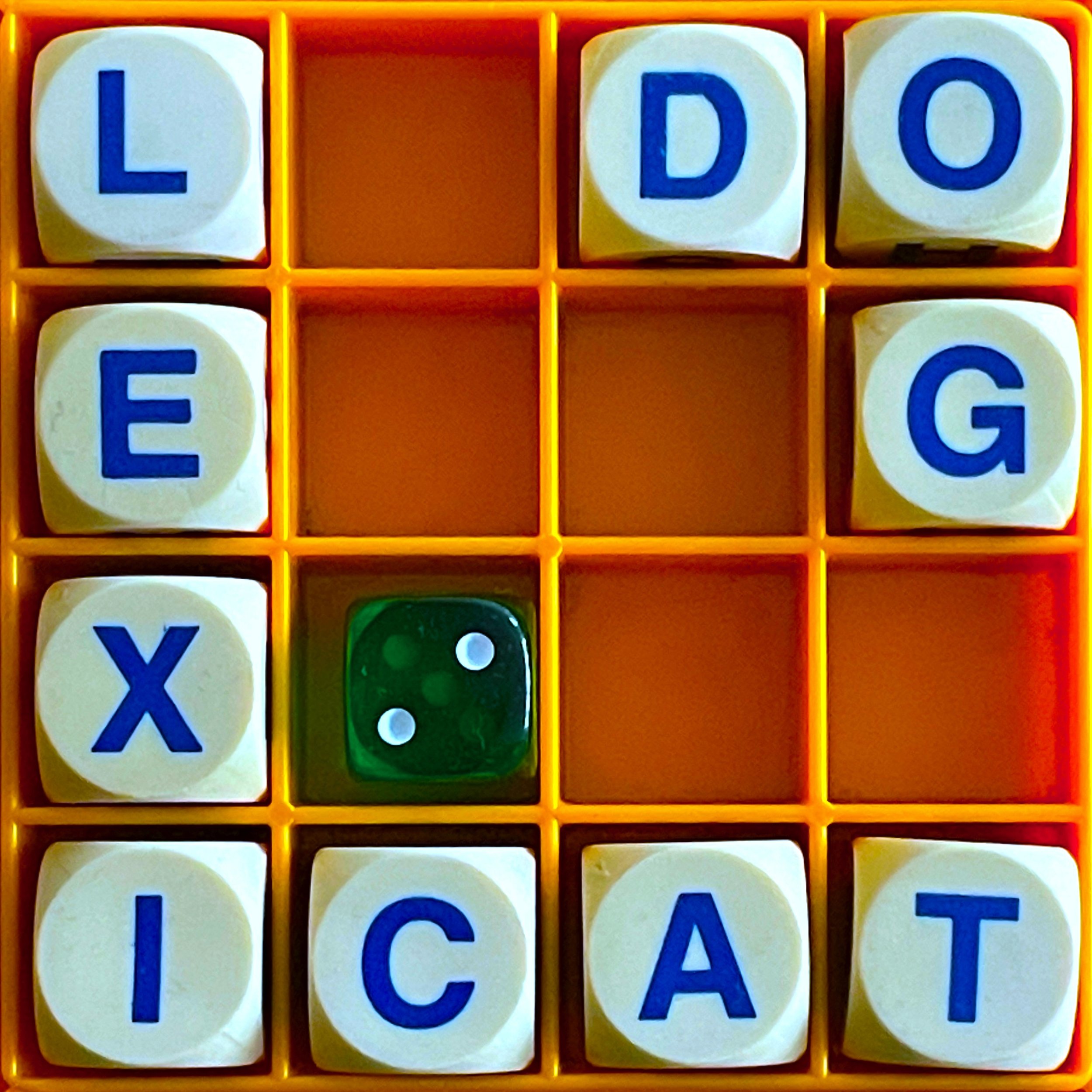MARY ROBINETTE KOWAL: Elsie does lie. I had just given her the "sleepy" button and I was in the kitchen. I was making lunch, and she goes to the button board and she says, "bedroom, sleepy, lie down." I'm like, "What a great contextual use. Yes, absolutely. Let's go take a little nap," and walk into the bedroom. And my cat doesn't come in, and I come back - and she's eating my cheese sandwich. And she has, multiple times, tried to send me out of the room in order to get my food. So when I'm making lunch and she starts talking to me and it's something like, “Go check the litter box” or something like that, food goes into the microwave and then I investigate whatever's happening.
HZ: How did that make you feel? You're like, “I can never trust her again?”
MARY ROBINETTE KOWAL: I don't know. I was like, oh, right. Cat.
Allusionist 204. Lexicat, part 1 transcript
HZ: It's a lot of deductive reasoning happening with how she's using language. Fascinating.
MARY ROBINETTE KOWAL: Yeah, it really is - which is why, when I get comments on videos where it's like, “Oh, this cat is just walking across buttons randomly,” I'm like, no, I have a dog that does that. I daily have moments where I'm like, okay, no, this is really a thing that's happening.
Allusionist 145 Parents transcript
FREDDY McCONNELL: A lot of the time when you hear about trans and non binary inclusion in pregnancy care, the idea is that all of this inclusive stuff is additive. It's not meant to replace language that works for the vast majority of people who are pregnant, which are cis women; it's just this is the language you use if and when you do encounter someone who's trans.
Read moreAllusionist 79. Queer - transcript
AMY SUEYOSHI: I see 'queer' as an umbrella term, as a political call for revolution as well as unity across different groups of people.
JONATHAN VAN NESS: I think of it definitely with positive and loving energy around it, I don’t think of it as an insult at all; growing up, I would have thought of it more as an insult. I think it was in 2015 when we got marriage equality, and the media, especially the LGBTQ+ media, began to use it as an umbrella term, something we could all be part of. So I think I got the cue from media to know that it was a gorgeous amazing word, one where we’re taking the love back and it wasn’t one to be offended by any more.
KATIE MINGLE: I haven’t always loved the term for myself, because it feels like an umbrella term that you can use if you’re gay and in a relationship with someone of the same sex, or you can use if you’re a basically straight couple who occasionally has a threesome with someone. That’s what ‘queer’ has come to mean: anyone who’s not inside the norm.
AMY SUEYOSHI: I think it's rejecting things like patriarchy and heteronormativity, mandates of morality. So not just to be able to keep things gray or to be postmodern, post category, but instead rather to call for a true revolution of the way we see the world, the way we categorize the world. So it's not just about LGBT rights per se but it's about creating a world that's more respectful of equity and thinks about diversity as a plus and values different ideas as a side of radical change rather than fear.
KATIE HERZOG: I sort of hate it. It’s too broad.
TOBIN LOW: It's so useful. I mean especially as there is this proliferation of identities that people can call themselves and identify with and really claim, it's a great way of just sort of acknowledging that it's all in the umbrella and that it's all valid; it's just like a way of acknowledging the validity of all the things, which I think is great.
ERIC MARCUS: This word has tortured me.
Read more



